Palmetto Bluff Real Estate Company Sales Office
Office Hours
Monday-Friday 9am - 5pm
Saturday 9am - 4pm
Sunday 12 - 4pm
Saturday 9am - 4pm
Sunday 12 - 4pm
Lydia Moore, the Research and Education Coordinator here at Palmetto Bluff, oversees exactly what her title says and more. Whether she’s leading a lecture on pollinators or outside collecting data for her most recent research endeavor, there is constant learning happening. We got a chance to sit down with her during the Palmetto Bluff Conservancy’s “Lunch with…” series to learn more about her and what she does here on the Bluff.
What made you want to become a biologist?
From a young age I enjoyed learning about plants and animals and that passion continued to grow as I matured. While I loved exploring outside as a kid, exploring without learning was never enough. I felt compelled to learn about the natural world around me! I loved everything about biology in school: being outside, dissections, learning about the interconnectedness of ecological communities…. My experiences in the classroom and my own explorations really set me up for this career.
What is your background in biology?
I originally wanted to become a marine biologist (I grew up on a saltwater creek in Charleston), but my interests diverged. First, I became obsessed with birds and went through a prolonged ornithology phase, then snakes and tortoises drew my attention, followed by insects, before I finally settled on bats. My research focus is really community ecology – which basically studies how species interact with (or exclude!) each other within the same geographic area. Bats are a wonderful focal taxa for the types of questions I usually ask. My research at Palmetto Bluff is expanding my focus from bats to reptiles, insects, and birds.
What brought you to Palmetto Bluff and what are some of your responsibilities?
This wonderful job that I have is what landed me here at the Bluff! The position seemed too good to be true when I saw the job posting and it has been pretty incredible. I run the research and education programs for the Conservancy. There were several ongoing wildlife monitoring projects through the Conservancy before I arrived, which means there was a substantial data set sitting on my desk when I first walked through my office door. My research duties include statistically analyzing existing data sets, initiating new research projects, and collaborating with other researchers. Responsibilities related to education include organizing our summer kids camp, beginning new education programs, and participating in the ongoing Explore PBC series.
Talk me through an average day for you on the Bluff.
Oh boy. Every day is different which I absolutely love! Sometimes I come in and spend most of the day in front of my laptop. Most people think field biologists spend the entirety of their career outside and don’t realize that the majority of a biologist’s time is actually spent looking at a computer screen. On those days I am usually entering data, analyzing data, or doing background research on one of several projects I would like to get started. Sometimes I get to spend the entire day away from the office participating in one of our education programs or conducting surveys for one of our research projects.
What makes Palmetto Bluff such an interesting place from a biology perspective?
Palmetto Bluff has an incredible diversity of habitat within its 20,000 acres. This can potentially lead to a large species richness (or the number of species within a given area), including the occurrence of rare or federally listed species. In 2016, a federally threatened species of bat was discovered in the coastal plain of South Carolina for the very first time – right here on Palmetto Bluff! That is incredible! I’m excited to see what else we find here.
What are you hoping to learn from the land here at the Bluff?
I think one of the biggest things we can learn here is how humans and wildlife can coexist. We still have so many acres of good habitat left at the Bluff that we really get to see wildlife up close, which is thrilling to many of our visitors. Observing human-wildlife interactions can inform us of how successful we are as stewards of the land in making sure we have things like effective wildlife corridors and suitable habitat for specific species.
The dates for the rest of the “Lunch with” series are:
Lunch with a biologist: July 18
Lunch with a wildlife manager: August 1

The Arts Initiative at Palmetto Bluff: 2026 Artist in Residence Artists and Workshops There’s a particular kind of quiet that settles over a workshop studio in the early morning; the kind where you can hear brushes moving across canvas, hands shaping clay, ...
Montage Residences Palmetto Bluff: Turnkey Luxury Homes and Lucrative Real Estate Investments There’s a particular kind of real estate buyer who values their time as much as their money. They understand that true luxury isn’t just about owning things; it’s ab...
Before you let your New Year’s resolutions quietly fade, remember this: there are still eleven months ahead. Plenty of time. Plenty of possibilities. This year offers a different approach—one inspired by connection and support. At Palmetto Bluff, you’re sur...
The newest golf experience at Palmetto Bluff is already drawing rave reviews. As the third pillar of golf experience at Palmetto Bluff, Anson Point brings with it a certain lofty set of expectations. After all, it’s hard to follow something like May River G...
“It's the thrill of being involved in the creation, and it’s the gratification of watching that creation evolve in the manner which you’d hoped”.Bill Coore, Coore & Crenshaw Golf Course Architectshttps://vimeo.com/1155713833?share=copy&fl=sv&fe=c...

From punchy pastels to saturated jewel tones, color is breaking free of its neutral confines. In these artful Lowcountry homes, design becomes a joyful expression of personality and place.Story by Barry Kaufman / Photographs by Kelli Boyd and Nicole CohenInter...
Inside the New Palmetto Bluff Club Fitness Center, Reformer Pilates Studio, and What Wellness Really Means Kendra Till's journey to Palmetto Bluff wasn't exactly a straight line. After growing up in Iowa and attending the University of South Carolina, her a...
Palmetto Bluff Real Estate: Why Winter is the Best Time to Buy Your Lowcountry Home There’s something about winter in the Lowcountry that reveals the true beauty of what life at Palmetto Bluff truly feels like. Century-old live oaks strung with lights cast ...
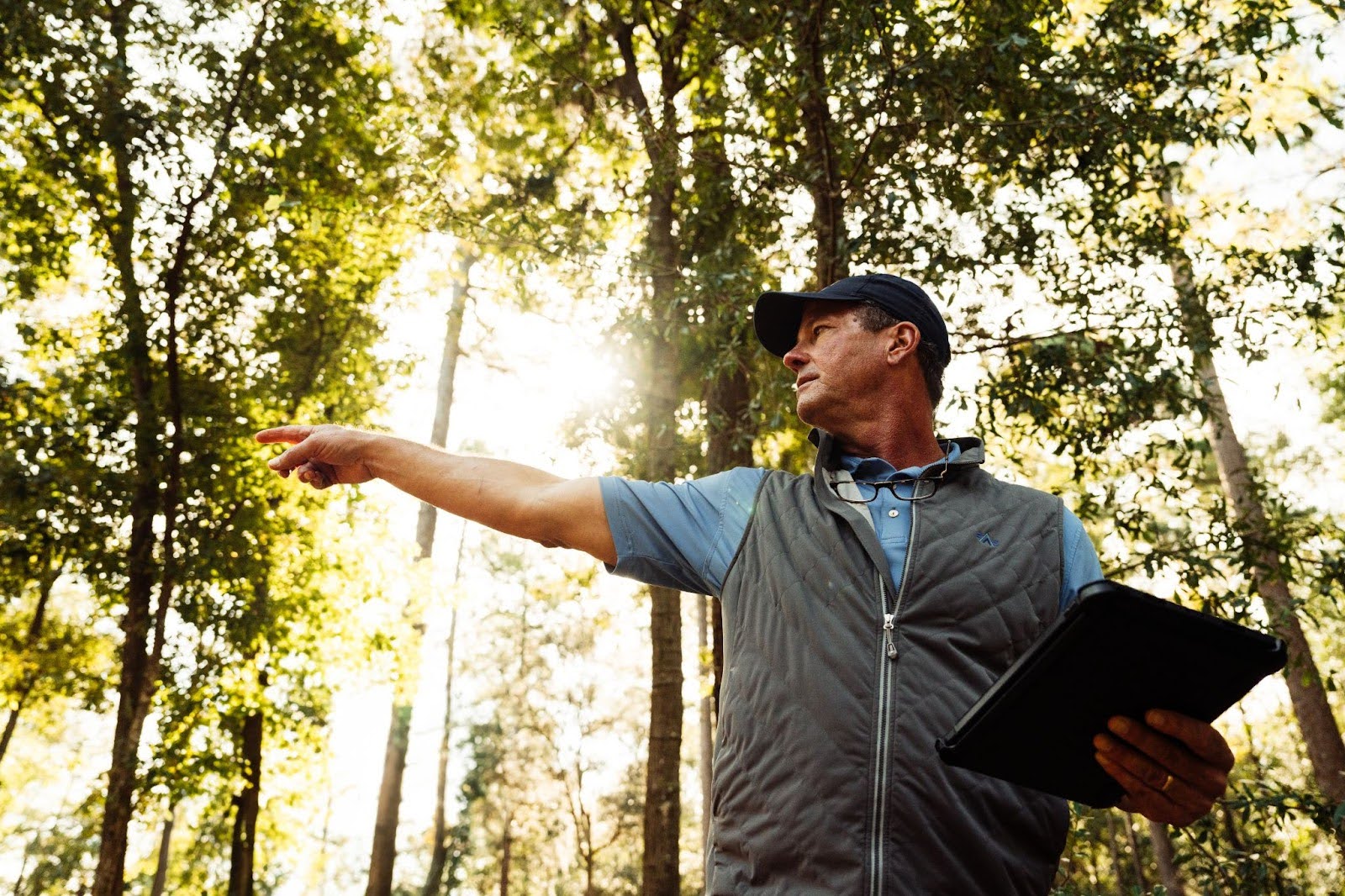
Anson Point Golf Course at Palmetto Bluff: A Coore & Crenshaw Nature-Forward Design Meet Palmetto Bluff’s Vice President of Development, Will Howard, a Georgia native who found his home in Bluffton over 20 years ago. As VP of Development, Will has a wide...

Warm, fragrant, and deeply comforting, Chef Beth’s Southern Sausage & Sage Stuffing is a holiday classic that brings together rich pork sausage, fresh herbs, and toasted bread for the ultimate savory side dish. Studded with green apples and aromatic vegeta...
We do not attempt to independently verify the currency, completeness, accuracy or authenticity of the data contained herein. All area measurements and calculations are approximate and should be independently verified. Data may be subject to transcription and transmission errors. Accordingly, the data is provided on an “as is” “as available” basis only and may not reflect all real estate activity in the market”. © [2023] REsides, Inc. All rights reserved. Certain information contained herein is derived from information, which is the licensed property of, and copyrighted by, REsides, Inc.